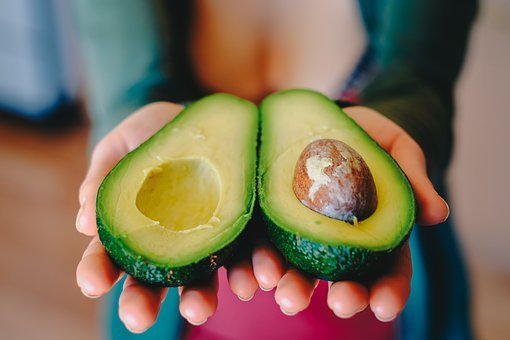Avocados may have a range of health benefits, including improving digestion, decreasing the risk of depression, and protecting against cancer.
Also known as an alligator pear or butter fruit, avocados are actually a type of berry. They grow in warm climates.
Rich in nutrients:
Avocados are a source of vitamins C, E, K, and B6, as well as riboflavin, niacin, folate, pantothenic acid, magnesium, and potassium. They also provide lutein, beta carotene, and omega-3 fatty acids.
Here is the nutrition breakdown for a 7-ounce (201-gram) avocado:
• Calories: 322
• Fat: 30 grams
• Protein: 4 grams
• Carbs: 17 grams
• Fiber: 14 grams
• Vitamin C: 22% of the daily value (DV)
• Vitamin E: 28% of the DV
• Vitamin K: 35% of the DV
• Riboflavin (B2): 20% of the DV
• Niacin (B3): 22% of the DV
• Pantothenic acid (B5): 56% of the DV
• Pyridoxine (B6): 30% of the DV
• Folate: 41% of the DV
• Magnesium: 14% of the DV
• Potassium: 21% of the DV
• Copper: 42% of the DV
• Manganese: 12% of the DV
Healthy for the heart:
In every 100 g of avocado there are 76 milligramsTrusted Source of a natural plant sterol called beta sitosterol. Regularly consuming beta sitosterol and other plant sterols may help maintain healthy cholesterol levels, which are important for heart health.
Many studies investigating the effects of avocados on heart health were funded by the Hass Avocado Board. Even though this doesn’t discredit study findings, some experts suggest that industry involvement in peer-reviewed research could skew results
Great for vision:
Avocados contain lutein and zeaxanthinTrusted Source, two phytochemicals present in eye tissue. They provide antioxidant protection to help minimize damage, including from UV light.
Help prevent osteoporosis:
Half an avocado provides approximately 18%Trusted Source of the daily value of vitamin K. This nutrient is often overlooked but is essential for bone health. Taking in enough vitamin K can support bone health by increasing calcium absorption and reducing the urinary excretion of calcium.
Prevent cancer:
Studies have not yet assessed a direct link between avocado consumption and a reduction in cancer risk. However, avocados do contain compounds that may help prevent the onset of some cancers.
Supporting fetal health:
Folate is important for a healthy pregnancy. Adequate intake reduces the risk of miscarriage and neural tube abnormalities. Consume at least 600 micrograms (mcg)Trusted Source of folate per day when pregnant. One avocado may contain as much as 160 mcgTrusted Source.
Reducing depression risk:
Folate helps prevent the buildup of homocysteine, a substance that can impair circulation and delivery of nutrients to the brain. Reviews of past research Trusted Source have linked excess homocysteine with cognitive dysfunction, depression, and the production of serotonin, dopamine, and norepinephrine, which regulate mood, sleep, and appetite.
Improving digestion:
Eating foods with natural fiber can help prevent constipation, maintain digestive tract health, and lower the risk of colon cancer.
Natural detoxification:
StudiesTrusted Source have shown that dietary fiber also promotes good gut health and microbial diversity. This helps the body maintain a healthy bacterial balance. This can reduce inflammation and aggravation of the digestive tract.
Osteoarthritis relief:
Avocados, soy, and some other plant foods contain saponins. These substances may have a positive effect on knee and hip osteoarthritis symptoms.
Antimicrobial action:
Avocados and avocado oil contain substances that have antimicrobial properties. Research shows that avocado seed extracts can help defend the body against both Streptococcus agalactiae and Staphylococcus aureus infections, for example.
Protection from chronic disease:
The monounsaturated fatty acids in avocados may be beneficial in preventing chronic conditions, such as cardiovascular disease.
Beneficial for gut health:
Avocados are high in fiber, providing about 14 grams in each avocado. That’s nearly half of the current DV for this important nutrient.
Getting enough fiber in your diet is essential for the health of the digestive system because it helps promote the growth of healthy bacteria.
Rich source of antioxidant and anti-inflammatory compounds:
In addition to vitamins, minerals, healthy fats, and fiber, avocados are packed with bioactive compounds including carotenoids, vitamin C, vitamin E, and phenolic compounds (23Trusted Source).
These substances have been shown to have significant antioxidant, neuroprotective, and cardioprotective activities.
Promote a healthy body weight:
Although there are multiple factors that influence weight, following a nutritious and balanced diet is perhaps most important when it comes to reaching and maintaining a healthy body weight, which is critical for disease prevention.
Although avocados are high in calories, they’re packed with nutrients and help promote satiety, thanks to their high fiber and healthy fat content.
Smart choice during pregnancy and breastfeeding: During pregnancy and breastfeeding, nutrient demands significantly increase.
For example, during pregnancy:
• Folate requirements increase from 400 mg to 600 mg.
• Potassium needs jump from 2,600 mg to 2,900 mg.
• Vitamin C needs increase from 75 to 85 mg.
Versatile and delicious ingredient:
In addition to being highly nutritious, avocados can be used in a number of recipes, both sweet and savory. This makes them a smart ingredient to have on hand.
Here are some ideas for how to incorporate more avocado into your diet:
• Use avocado in place of mayo with Greek yogurt in chicken, salmon, egg, and tuna salads.
• Make a classic guacamole using ingredients like avocados, onions, lime, and cilantro.
• Top chicken breasts with a salad of tomato and cubed avocado.
• Toss frozen avocado chunks into smoothies for a source of healthy fat.
• Top chilis and soups with sliced avocado.






0 Comments